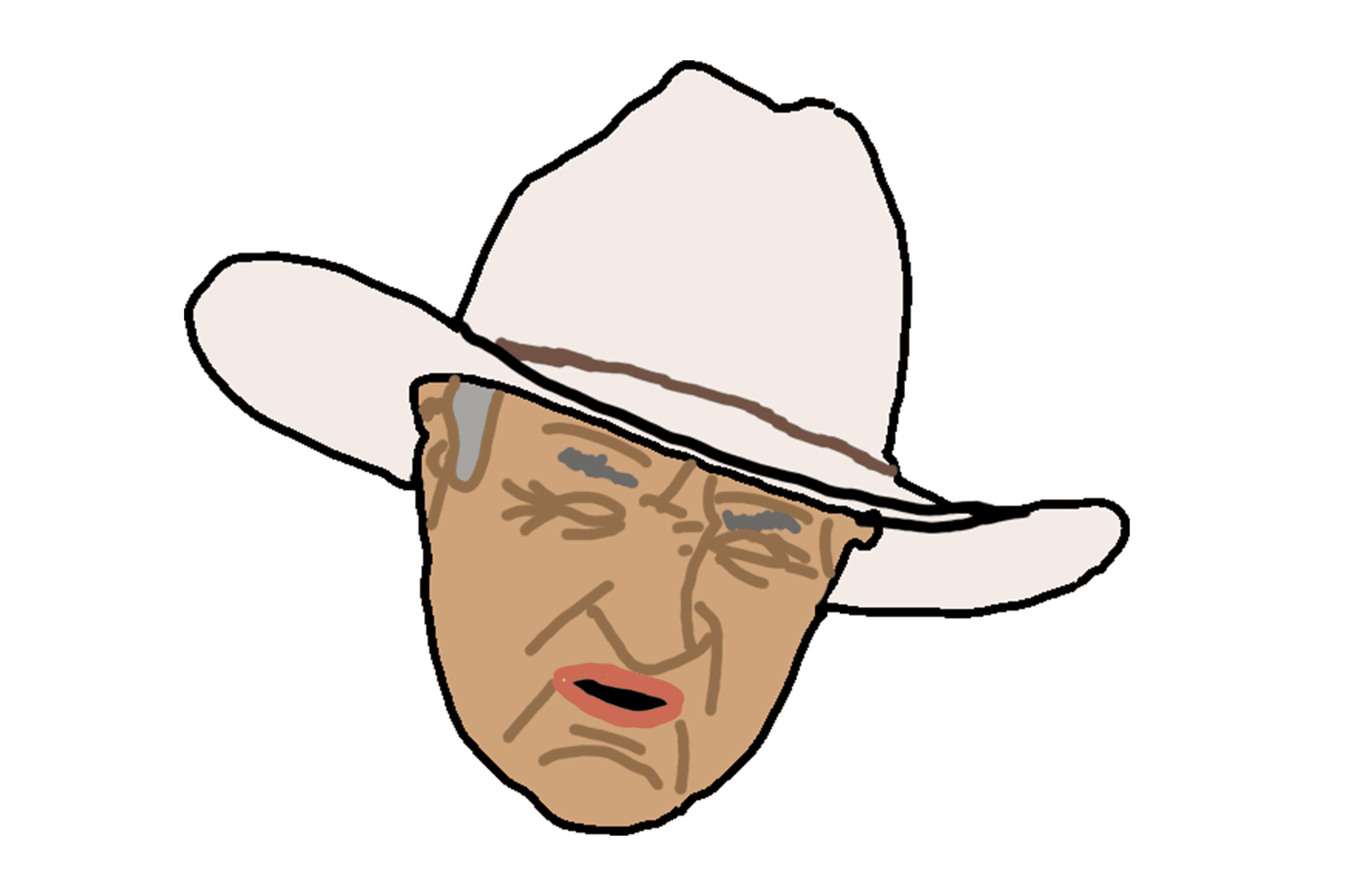It seems every Australian young person is familiar with Bob Katter, the loose-unit MP from Far North Queensland, presiding over one of Australia’s largest electorates, Kennedy: a seat that stretches from the Queensland and Northern Territory border to the outer suburbs of Townsville. With a convincing 13.1% margin after the 2022 election, it’s clear that outback Queenslanders take him seriously, despite his proclivity towards eccentricity.
It’s a different story in Australia’s metropolitan south. From his bizarre crocodile speech to the endless amount of Katt-er themed memes, Katter’s maniacal grin seems to be imprinted on the culture of the young and politically savvy.
For our generation, Katter has become a court jester whose often nefarious political positions are overshadowed into benignity by his outrageous antics. But as Father of the House — the longest currently-sitting MP in federal parliament — with a long history in Queensland state politics before his federal shift in 1993, Bob Katter has an extensive political record. This is not some relatively harmless charlatan. Instead, we are dealing with a career politician who rose through the ranks of the Country Party under Australia’s most notorious Premier — Sir Joh Bjelke-Petersen.
The Bob Katter story goes back to the final days of WWII, when the infamous MP was born in Cloncurry — a town in the heart of north-west Queensland’s tropical savannah country. The Katters are an Australian political dynasty: Bob’s father, Bob Katter Sr., split from the Labor party in 1957 to later join the Country Party (later the National Party and now the combined Queensland Liberal National Party). The elder Katter held Kennedy from 1966 to 1990 for the Country/National Party.
Katter studied law at the prestigious University of Queensland, where he was both President of the Law Society and St Leo’s College. Whilst this college boy failed to graduate, he did make his mark on popular culture by pelting eggs at the Beatles in 1964.
Ten years later, Bob Katter had clearly decided it was time to follow in his father’s footsteps and pursue a political career. In 1974, Katter was first elected on a Country Party ticket to Queensland’s Legislative Assembly. For almost a decade, the young politician would sit on the backbench of the infamous Bjelke-Petersen government. During this time Bjelke-Petersen consolidated his position as Premier with the aid of a gerrymandering and malapportioning system that essentially made Queensland undemocratic until the 1990s. Additionally, in 1971 the Premier issued his infamous state of emergency over the controversial Springboks rugby tour — the beginning of Sir Joh’s leadership of modern Australia’s only police state.
By 1983, however, Katter had clearly caught the Premier’s eye, and was elevated to the “Hillbilly Dictator’s” Cabinet. From 1983 to 1989, Katter fulfilled various ministerial positions under Bjelke-Petersen, starting with Minister for Northern Development and Aboriginal and Islander Affairs until 1987, when the portfolio changed to Northern Development, Community Services and the ominously named “Ethnic Affairs”.
The Bjelke-Petersen government was notoriously regressive when it came to First Nations people, even in Australian terms. Queensland Police’s special branch extensively monitored First Nations Australians, along with suspected “communists” (read: anyone remotely left-wing), the LGBT+ community and Jewish people. The Bjelke-Petersen government consistently resisted the campaign for land rights throughout its time in office, refusing the sale of pastoral land to Indigenous Australians.
It was in this context of blatant institutional racism that Bob Katter “represented” First Nations people in his Cabinet roles. In 1989 Katter himself opposed the provision of condoms to First Nations communities, a policy intended to increase access to safe sex in remote areas.
It should be noted that Bob Katter has vaguely referenced the possibility of his own Aboriginality: first claiming that he was “not too sure where my racial background has come from but I am not going to argue if someone calls me a blackfella” in 2013 before stating that he “identif[ies] as a blackfella on occasion” in 2017. Such claims have been broadly dismissed by prominent First Nations Australians, including respected Kalkutungu woman Delilah MacGillivray.
The Bjelke-Petersen government, apart from its racism, rampant corruption, authoritarianism and police brutality, was also intensely homophobic. Sir Joh’s government attempted to prevent the employment of LGBT teachers, tried to criminalise lesbianism, resisted the push to decriminalise gay men, and demonised the LGBT+ community during the AIDS epidemic.
Bob Katter, in this context, asserted in 1989 that the gay men practically didn’t exist in North Queensland. Katter vowed to “walk backwards from Bourke” across the Flinders electorate if gay men represented over 0.001% of the region’s population, before stating “mind you, if there are more, then I might take to walking backwards everywhere!”
This record of homophobia has remained with Katter, who as a federal MP in the 1990s voted against the decriminalisation of homosexuality in Tasmania, and so infamously opposed same-sex marriage in 2017 — despite his half-brother Carl Katter’s queer activism.
So, even putting aside Bob Katter’s more recent examples of racism and homophobia, the maligned MP has a long and serious history committed to one of the most authoritarian and conservative governments in Australian history. All this considered, should we really be treating him as a politically ineffectual bit of comic relief? Instead, while we watch his bizarre and often disgusting behaviour plastered across Tiktoks and Instagram memepages, we must keep in mind his extremely chequered past, and hold him accountable for his intimate role in the most notorious government in recent Australian history.





